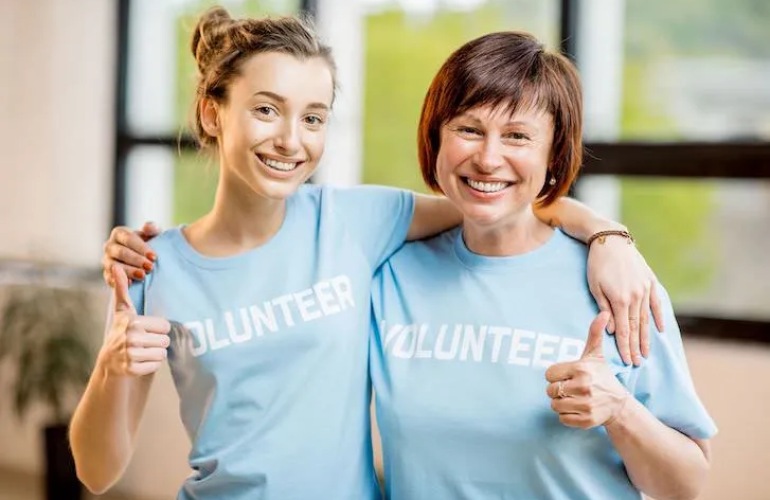“The human contribution is an essential ingredient. It is only in giving of oneself to others that we truly live.”
So said Ethel Percy Andrus, the first woman high school principal in California and the elder rights activist who founded AARP in 1958. Those words resonate powerfully with the huge contingent of seniors volunteering today. Statistics show that close to 20 million older adults contribute over a billion hours of community service per year, aiding other seniors, tutoring and mentoring at-risk youth, providing education and job training for veterans and their families, and pitching in for disaster relief. Typically, it is the seniors who put in the most hours, more than any other age group.
But grateful communities are not the only ones reaping the benefits of this volunteering. A recent study proves that when active adults are giving, they are also receiving big time.
The results are conclusive: Older adults who volunteer are happier. They live longer. The enhanced self-esteem, sense of purpose and stronger identity derived from helping others creates a reserve of emotional resources that helps them cope with personal loss in a healthier way. Without a doubt, the social, emotional and even physical benefits to senior volunteers makes giving to others, well…the gift that keeps on giving.
The University of Pittsburgh study, led by researcher Fenyan Tang, involved more than 200 volunteers, aged 50 and over. Each member of the study contributed an average of 6 hours per week to a nonprofit or government program. Their tasks ranged from legal consultation, to meal preparation to computer tech assistance. The study also assessed the level of support offered by the organizations involved and to what extent it impacted the volunteer experience.
Fast forward a year later to researchers following up with the volunteers to evaluate their progress. The consensus was that senior volunteers are happy campers indeed. Participants reported significant improvement in mental and emotional health, a heightened sense of productivity, increased social activity and a general feeling that life was better. In relation to their non-volunteering peers, older volunteers were less lonely, less depressed and more satisfied with their place in the world.
Beyond the social and emotional benefits, senior volunteers also experienced increased levels of physical functioning, enhanced muscular strength, and decreased pain, all of which helped delay mortality.
The study revealed one of the keys to successful senior volunteering is the training and support offered by the organization. The more flexible and inclusive the staff, the more responsive and happy the volunteers.
Once you are inspired to volunteer:
- Get a clear sense of how the organization of your choice runs its volunteer program.
- Be sure you will be adequately trained to carry out your responsibilities.
- Find out how to contact a staff member in the event you have questions during your shift.
- Look over the hours required carefully. Be cognizant of overscheduling yourself.
- Try to find a volunteer opportunity that is compatible with any physical limitations you may have.
- Be aware of the environment you will be working in.
It’s clear that emotionally meaningful volunteer opportunities for older adults can impact their lives as significantly as it impacts the lives of others. It’s a win/win.

